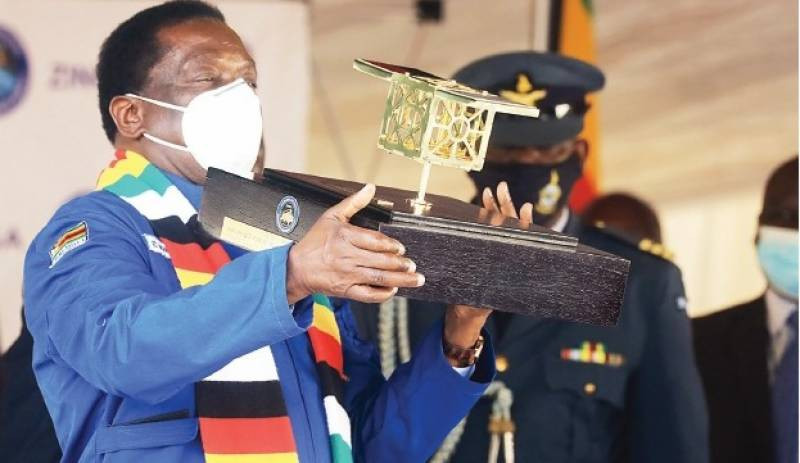
Zimbabwe is still in a celebratory mood after the launch of its first nano satellite, which was successfully done from the United States National Aeronautics and Space Administration’s (NASA) launch facility in Virginia.
The nano satellite was on board the Cygnus NG-18, an uncrewed spacecraft that provides commercial cargo resupply services to the ISS.
This development has sparked discussions on the relationship between the Zimbabwean government and the United States.
Less than a year after President Emmerson Mnangagwa took office following the November 17 military coup that ousted long-time leader Robert Mugabe, Zimbabwe began planning to launch the satellite programme.
The little information that has been available about the satellite launch shows that it was bankrolled by the government of Japan as part of a wider programme to assist countries that currently do not have any presence in space.
Some have been asking how the launch happened at NASA given the impression that the US is out to throttle Zimbabwe’s economy through illegal sanctions.
Some government officials and Zanu PF supporters accuse the US of sabotaging Zimbabwe’s economy through the sanctions that, in their view, have severely harmed the economy.
The Zanu PF regime has used demonstrations and hate speech to communicate with the US government, branding them as "evil of the land."
- Teachers, other civil servants face off
- Veld fire management strategies for 2022
- Magistrate in court for abuse of power
- Vungu Dam water treatment and irrigation project takes off
Keep Reading
But, if the United States hated Zimbabwe so much that it virtually destroyed the country's economy by imposing economic sanctions, how could they allow the satellite to be launched from their jurisdiction?
Zimbabwe, like some other countries, does not have rockets to launch the satellite into space.
The rockets take the satellite into orbit and then dismount to leave the satellite in orbit.
The launch pads are usually at NASA in the United States. Sanctions have no huge effect on Zimbabwe's economic progress because they only target a few individuals.
If it was really about sanctions, how could the US lift Zimbabwe into the space programme given that the country lacks launch facilities and rockets for launching satellites into orbit?
Grand public sector corruption and poor economic management are the foundation of Zimbabwe's multi-layered socio-economic difficulties, but Zanu PF has found a way to justify its failure by blaming sanctions for the country's chronic economic catastrophe.
The majority of Zimbabweans struggle financially, struggle to put food on the table, and struggle to obtain essential services like healthcare. This is not solely caused by sanctions, but corruption.
The satellite is projected to aid in the calculation of entire mineral quantities, infrastructure management, the improvement of local telecommunications services, and the collection of data for ground sensors used in catastrophe and weather monitoring.
But the purpose of setting up such a system was not well communicated to the general citizens.
Another growing concern is that the government launched a satellite programme to spy on its citizens, especially with the coming general election next year
Approximately 5 300 satellites are currently orbiting the earth, which means that thousands of cameras are taking real-time photographs above people.
Many individuals are concerned about space spying due to significant developments in satellite photography since the 1957 launch of Sputnik.
If one is concerned about privacy, one might question what satellites can see and where the data goes.
A unique vantage point offered by satellite photography allows for the capture of images of the planet that can be used by scientists and others to spot patterns and trends.
However, it also poses questions at a time when people's privacy is being scrutinised more than ever.
*Evans Mathanda is a journalist and development practitioner who writes in his personal capacity. For feedback email: evanngoe@gmail.com or call 0719770038 and Twitter @EvansMathanda19









